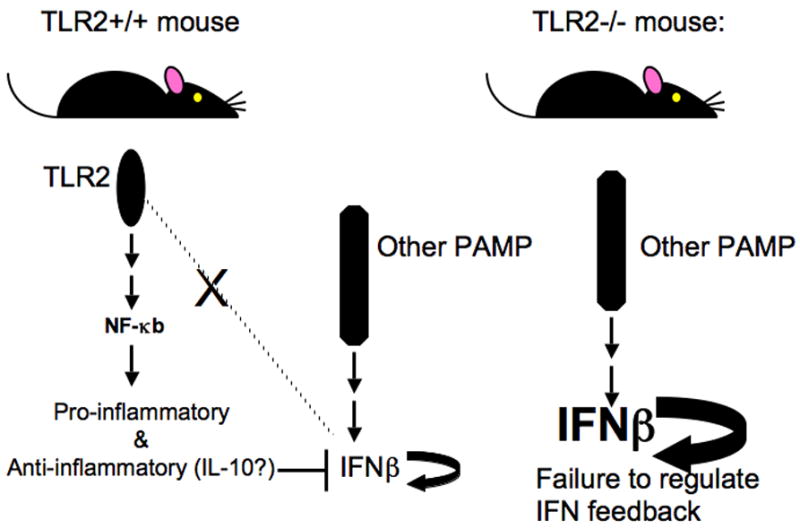Fig. 7. In the absence of TLR2 the IFNβ response is unchecked, resulting in exaggerated arthritis.

In wild-type animals, B. burgdorferi lipoproteins signal through TLR2, resulting in downstream activation of NF-kB and production of pro-inflammatory and anti-inflammatory cytokines. The presence of anti-inflammatory cytokines (i.e. IL-10) blocks the feedback amplification of Type I IFN, which is present due to PAMP receptor-mediated signaling events. In TLR2−/− mice, the lack of TLR2 signaling prevents cytokine production, resulting in uninhibited amplification of the Type I IFN response and the development of severe arthritis.
